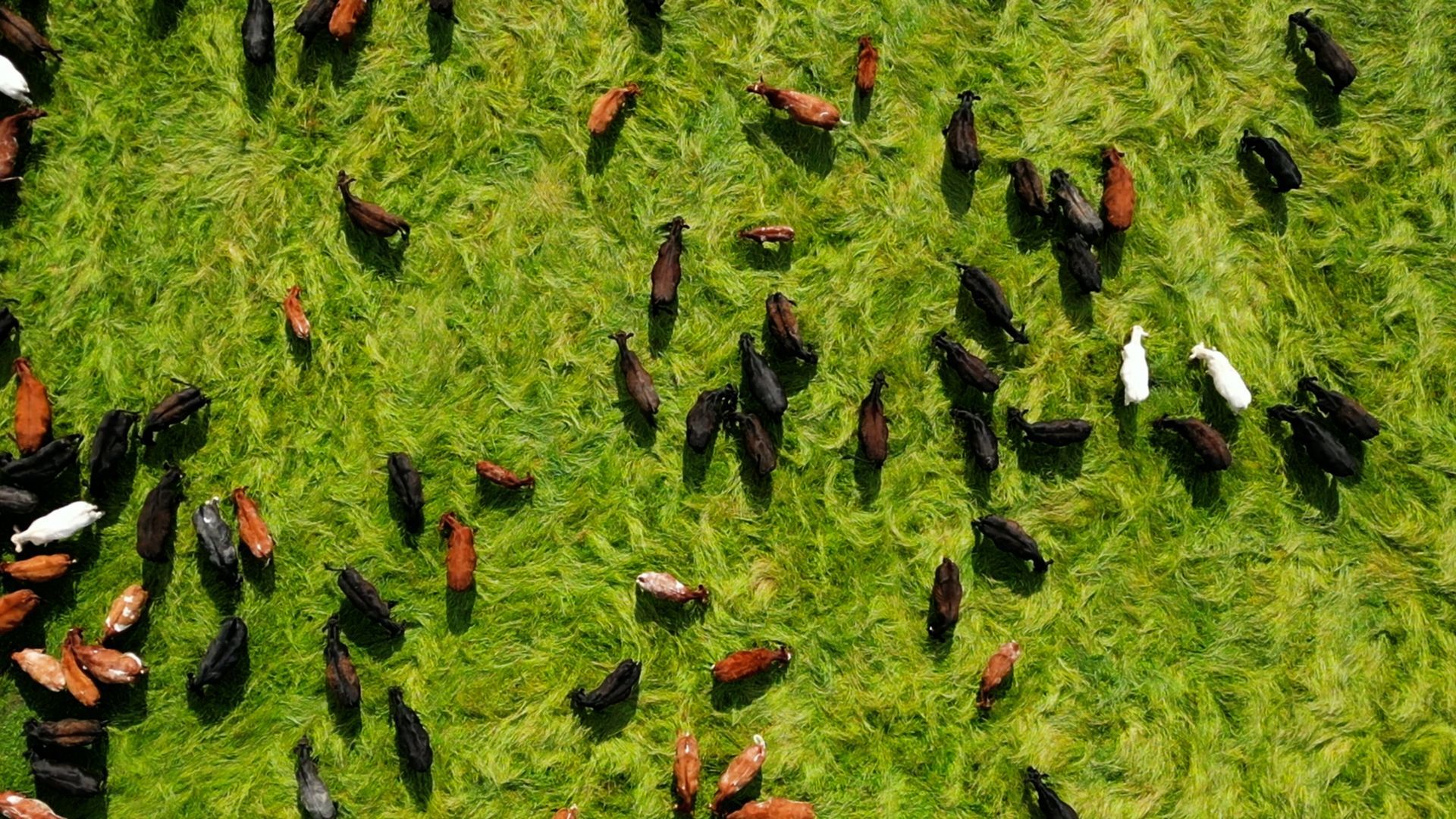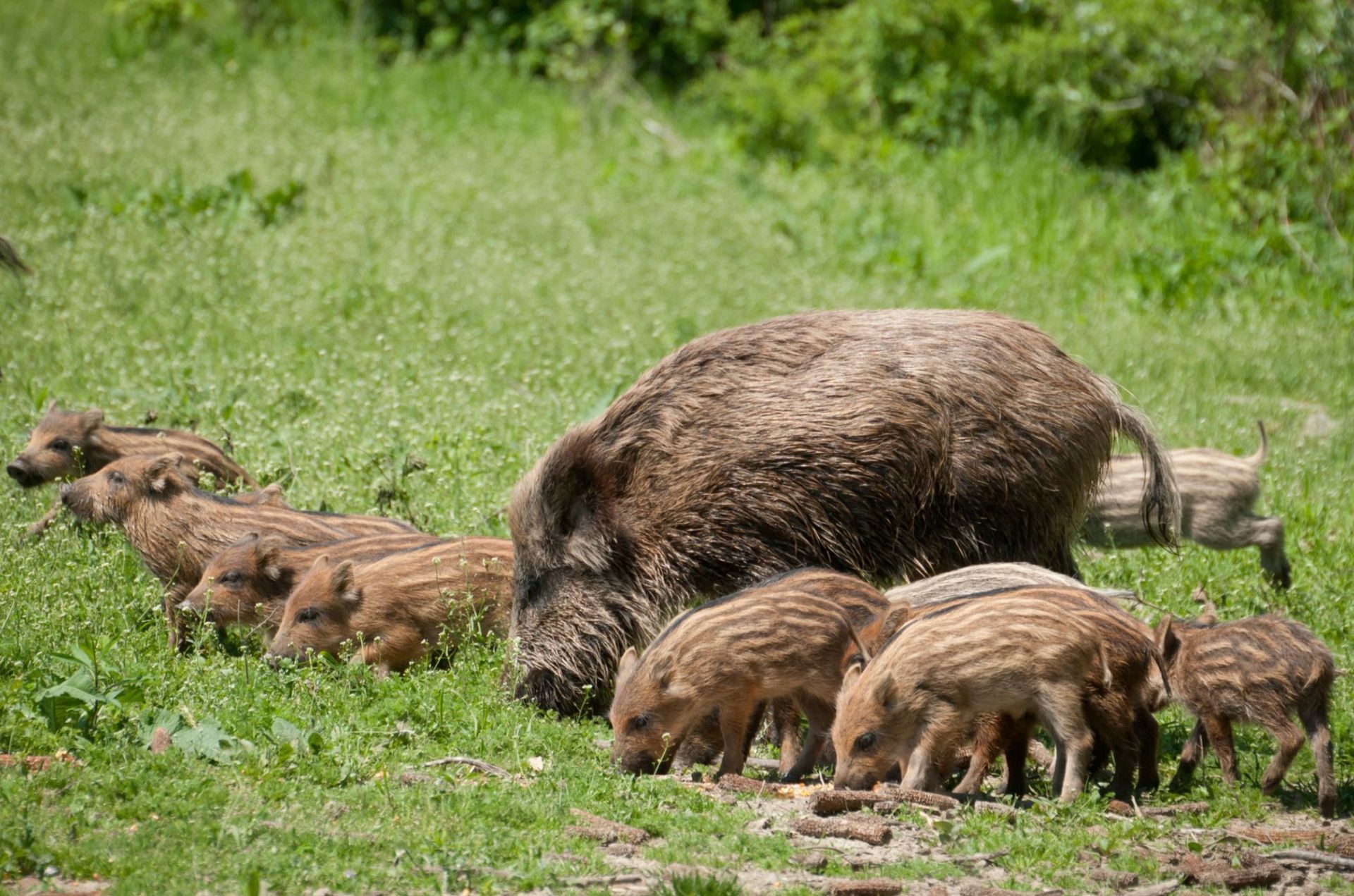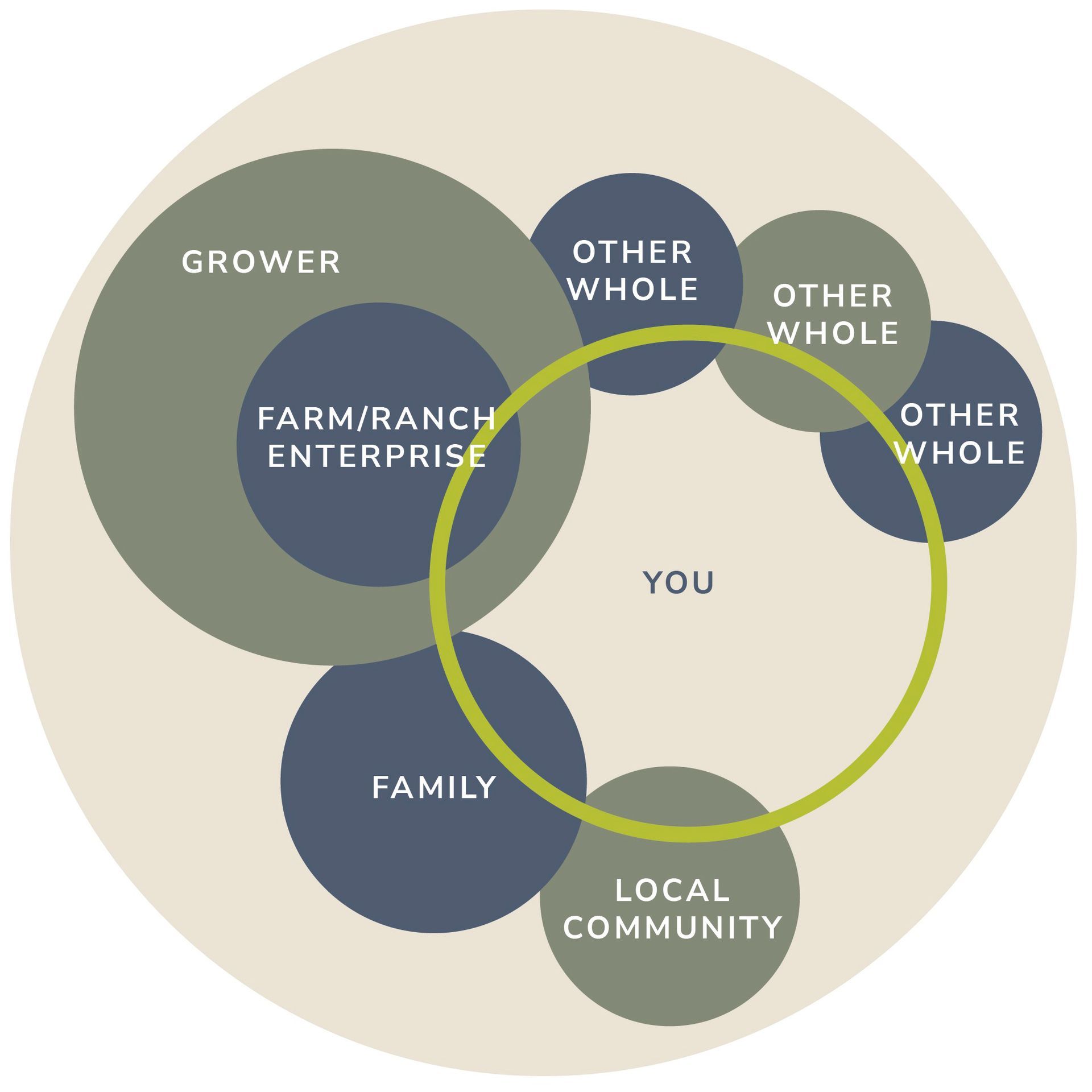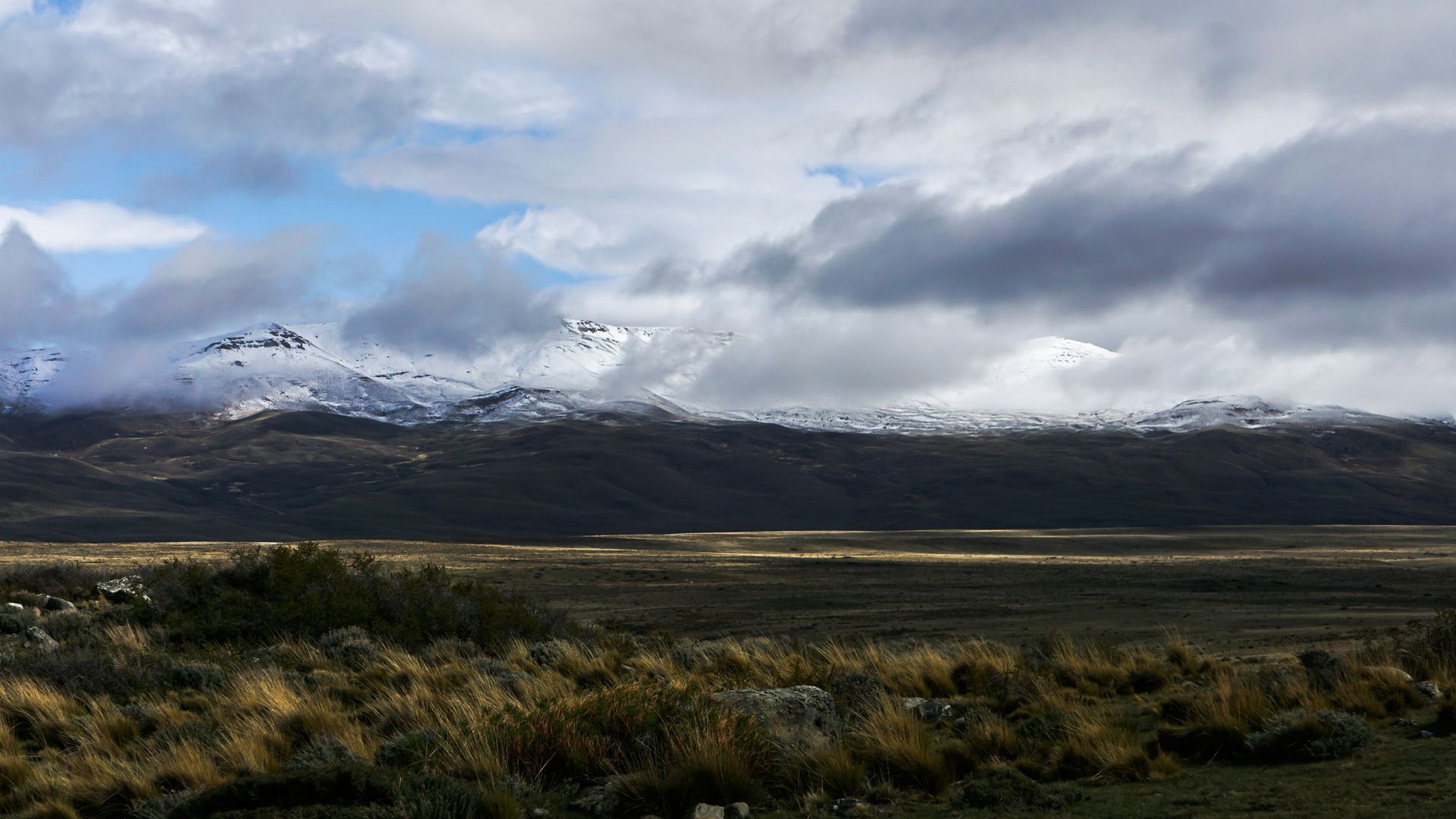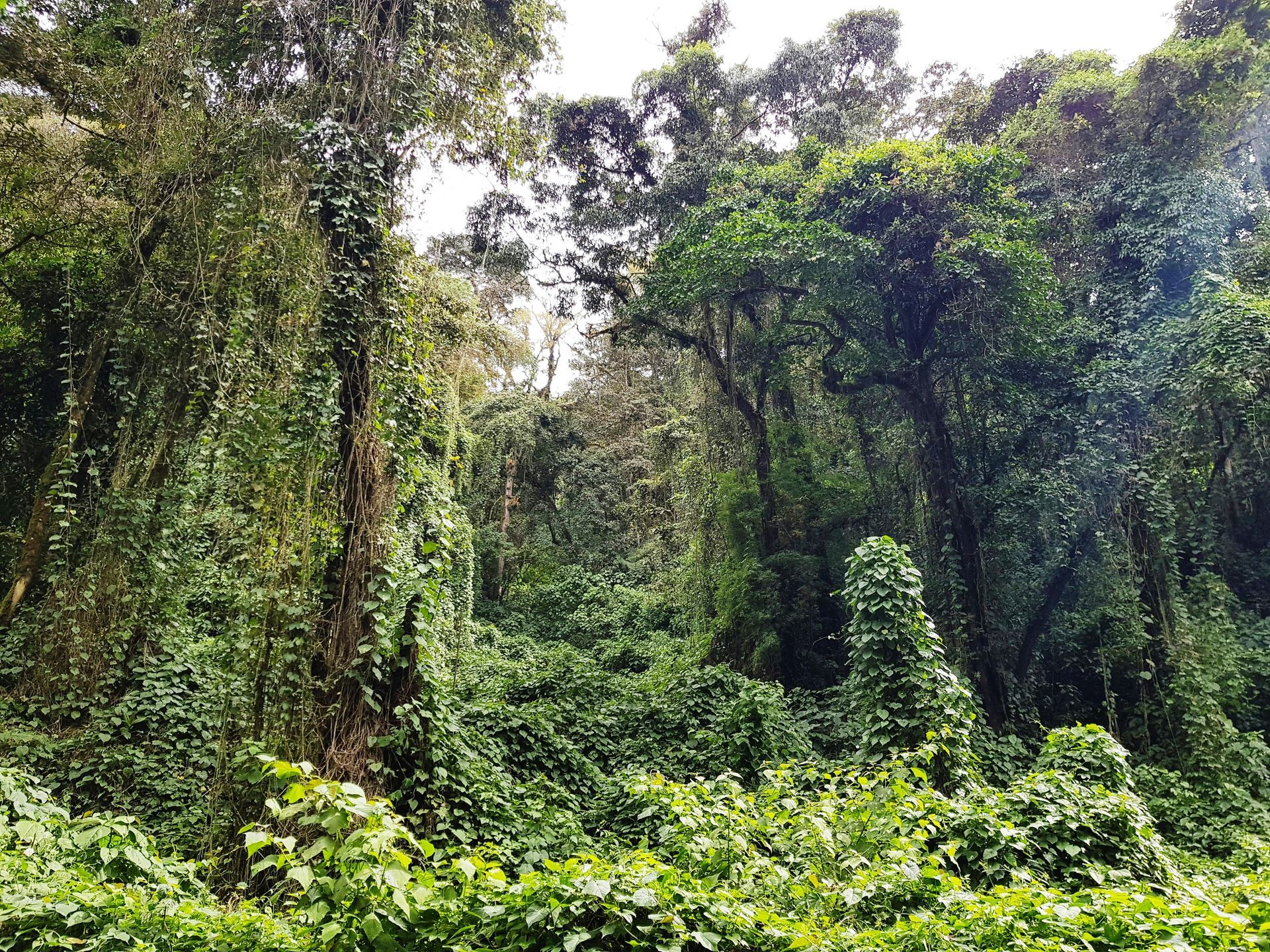The link between human health and natural farming
High levels of oleic acid make Francisco's pork heart healthy
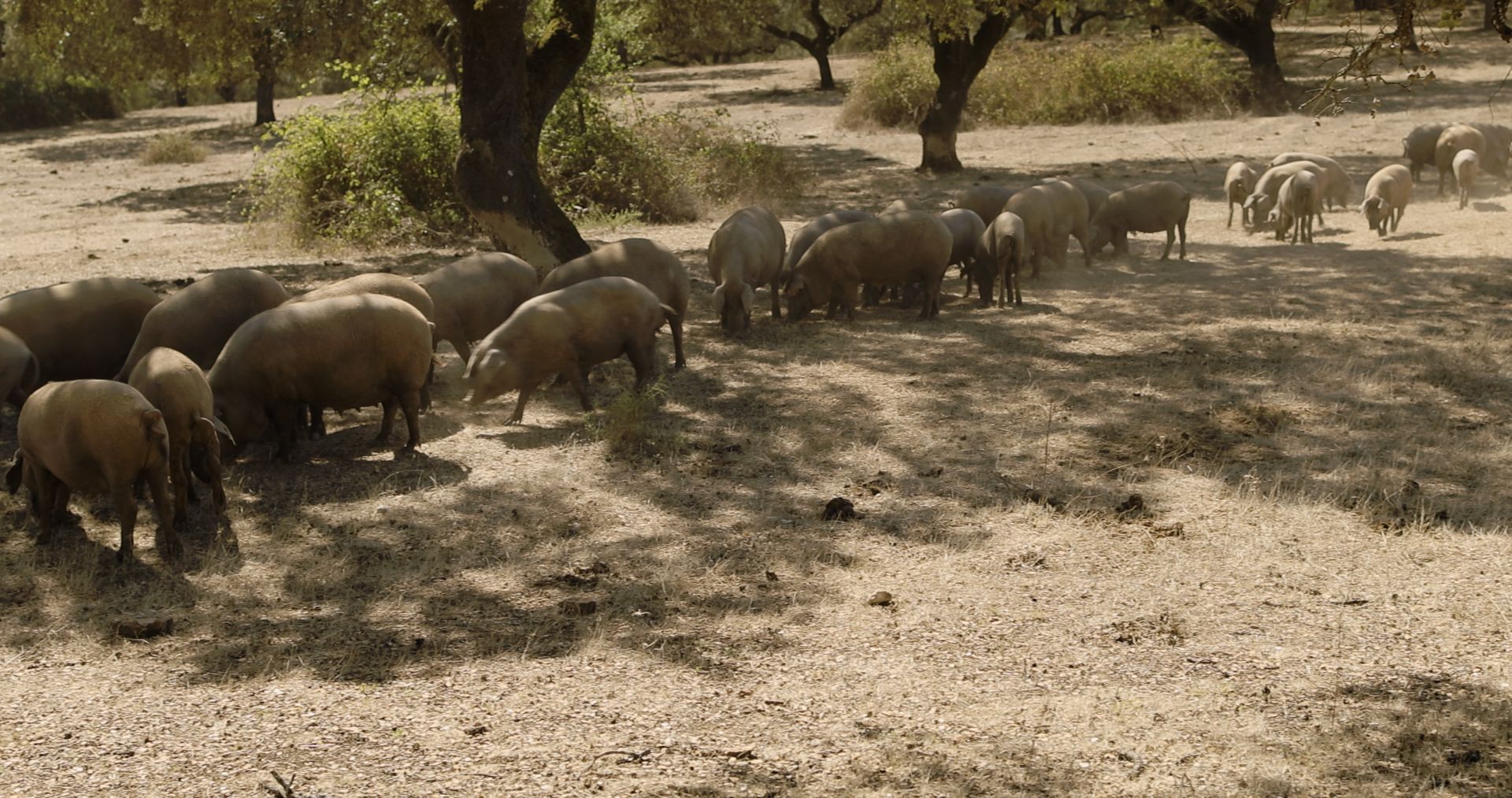
Francisco Alves in Herdade de São Luís, keeps Alentejano pigs in a Montado agroforestry system creating an exclusive product that has higher levels of oleic acid than extra virgin olive oil
The term 'lardy' is often used as a derogatory one to suggest something unhealthy but should we define healthy fat?
In September 2024 Sheila Cooke and I visited
Francisco Alves' farm in Portugal to see his regenerative Montado system which uses Holistic Management for all aspects of the land and business and it appears to have a knock on effect on not just the taste but the health aspects of the food he produces.

Above shows the structure of oleic acid, classified as a monounsaturated omega-9 fatty acid, abbreviated with a lipid number of 18:1 cis-9, and a main product of Δ9-desaturase. It has the formula CH3−(CH2)7−CH=CH−(CH2)7−COOH. The name derives from the Latin word oleum, which means oil.
Francisco chose to work with an unusual breed of pig called Alentejano which is a native Portuguese breed with only 3000 breeding mothers still in existence, this breed is the perfect compliment to the Montado system as they thrive on the acorns from the Holme oaks that form part of this 12,000 year old agroforestry system.
The Alentejano pig, indigenous to the Alentejo region of southern Portugal, is a unique breed descended from ancient wild boars (Sus scrofa) and is closely related to Spain’s Iberian pig.
As Francisco users them they are traditionally reared in the montado system, an agroforestry landscape of cork and holm oak woodlands, these pigs thrive on a diet rich in acorns (bolota), grasses, and natural forage. This acorn-based diet, high in oleic acid, contributes to the exceptional marbling and flavour of their meat, which is renowned for its tenderness and health benefits due to its high content of monounsaturated fatty acids.
Adapted to extensive farming, Alentejano pigs exhibit natural foraging behaviours, are resilient to harsh conditions, and play a vital role in maintaining the biodiversity of the montado ecosystem by reducing wildfire risks and sustaining plant balance.
Their meat, particularly in the form of cured products like presunto Alentejano, is protected under the European Union’s Protected Designation of Origin (PDO) scheme, symbolising both cultural heritage and quality.
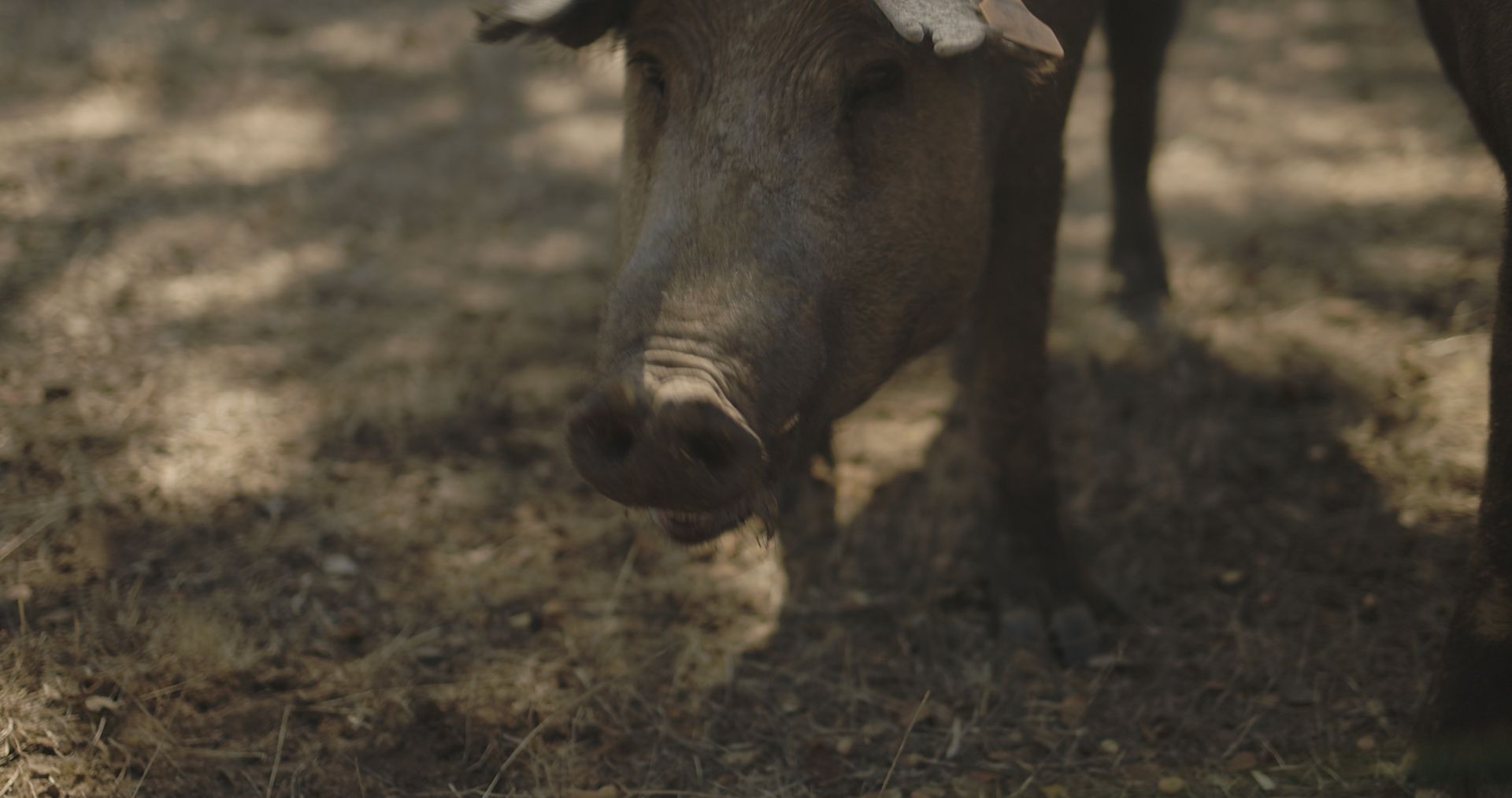
Photo below shows the white houses where the birthing pigs live with their strip 'garden' enclosures. Note the density of trees in the Montado system allowing both trees and pasture to thrive by having an open canopy.
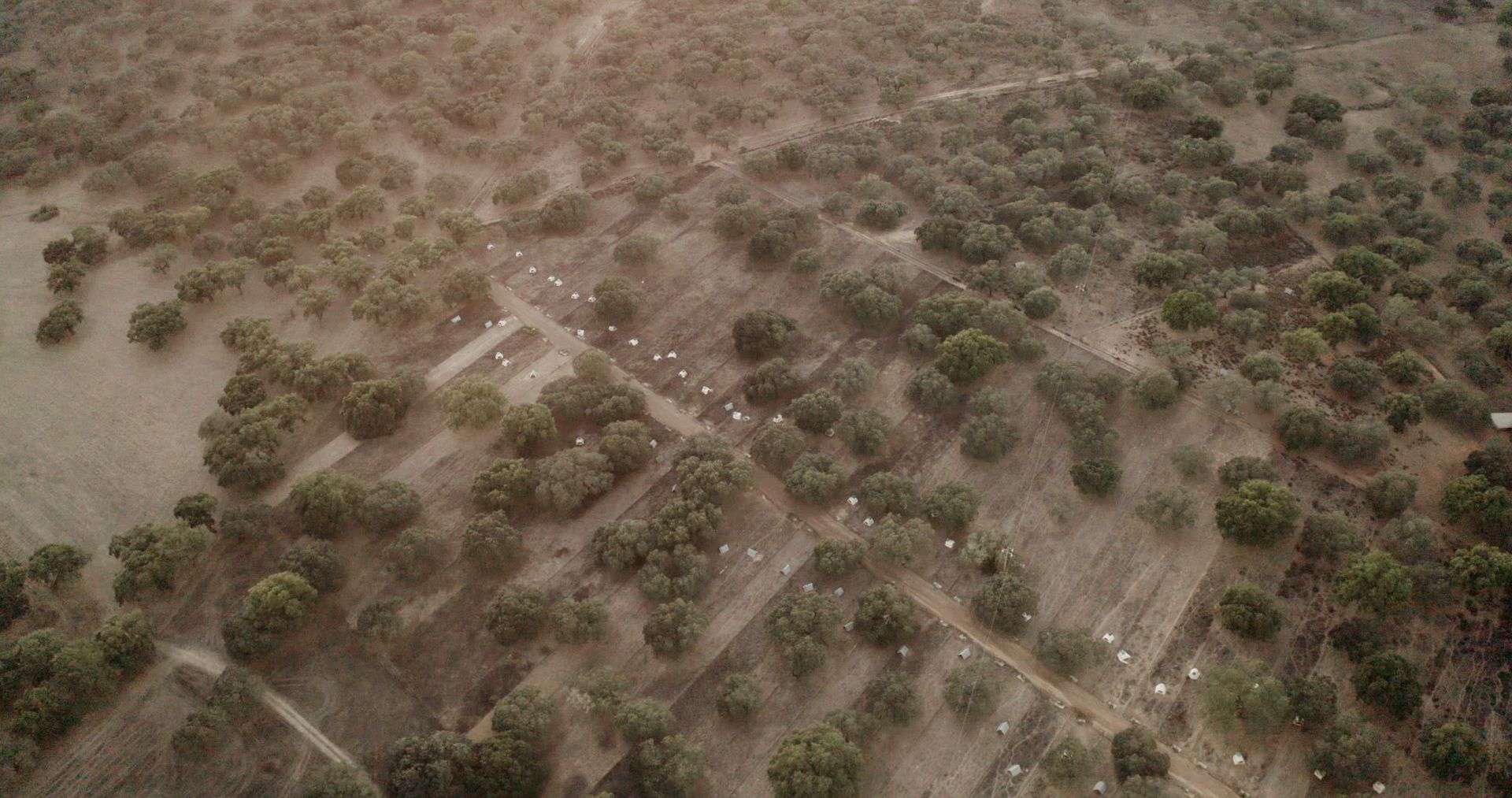
The meat produced within this system is not only a testament to traditional farming wisdom but also a model of nutrient-dense, health-promoting food.
This connection underscores the idea that the health of humans is intrinsically linked to the health of the land; by nourishing the soil, supporting biodiverse ecosystems, and respecting the natural behaviours of animals, we create food that nourishes us in return.
The montado and its integration of Alentejano pigs offer a vision of harmony and interdependence between humans and nature. It challenges the extractive mindset that often characterises modern agriculture, advocating instead for a regenerative approach that respects the intrinsic value of the land and its inhabitants. This approach resonates with the ancient understanding of stewardship, where humans are seen not as conquerors of nature but as custodians working in collaboration with it.
The resulting produce—meat rich in oleic acid, born from the synergy of oak trees, pigs, and the soil—is a tangible manifestation of this philosophy. It is a reminder that our health, as individuals and as a species, depends on recognising and honouring our place within the broader ecological web. In embracing regenerative systems like the montado, we are not just creating sustainable food systems; we are fostering a deeper connection with the Earth, ensuring the well-being of future generations while nourishing ourselves in the present.
But this is best explained by the farmer himself in the film below...
Sheila and I were lucky enough to get to try some of Francisco's exceptional pork cooked to perfection at the stunning Gandum Village hotel & Restaurant - more about that incredible place in a future blog post but suffice to say it was incredible!
Glen Burrows

3LM is an activity of New Foundation Farms Ltd.
Company no. 11542589
VAT no. 427 4339 89
Contact
Address
Orchard House, Clyst St. Mary, Exeter, Devon, England, EX5 1BR
Telephone +44 113 467 5164
Email info@3LM.network


